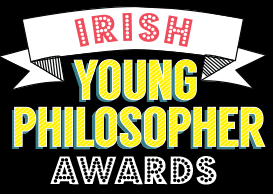
THE IRIS MURDOCH PRIZE (2019)
This year marks the centenary of the birth of the philosopher Iris Murdoch. Murdoch was born in Blessington Street in Dublin in 1919. To commemorate her birth and her remarkable achievements as a writer and philosopher, the IYPA (in association with In Parenthesis) will hold a special project award in her name.
For this project students are required to design the picture for a postcard that offers a representation of Murdoch’s philosophy. The postcard design may be a picture that represents any aspect of Murdoch’s work on ethics or what is termed ‘moral vision’. Please see below for more information.
TO ENTER THIS COMPONENT OF THE IYPA FESTIVAL STUDENTS MUST FOLLOW 4 STEPS
THE PRIZE:
The Iris Murdoch award is part of a larger celebration of Murdoch’s life that will be held in 2019 in association with the Philosophy by Postcard initiative.
One entry will be selected from the postcard designs submitted to the
IYPA Iris Murdoch Prize. In addition to receiving a trophy in Iris Murdoch’s name, the winning design will be published as a postcard and will be launched to the public to use as a postcard along with a special commemorative stamp by An Post. The student whose design is selected will also have their postcard design displayed at the Temple Bar Gallery in Dublin and will be invited to take part in Murdoch commemorative events.
For more information on Iris Murdoch and her philosophy, please see the following link https://www.philosophybypostcard.com/about-iris/
For questions please email youngphilosopherawards@ucd.ie
We hope you will take part in this very exciting project! We look forward to seeing your postcards.
FURTHER INFORMATION ABOUT THE:
IRIS MURDOCH PRIZE
Your picture or design for a postcard should be inspired by an idea from Iris Murdoch’s philosophy on ‘moral vision’.
WHAT IS 'MORAL VISION'?
Iris Murdoch suggests that art can play a role in our ethical lives and can help us to see the nature of goodness.
She thinks that a good person will look carefully, justly and lovingly at people and things they encounter in their lives and will not let prejudice or fantasy obscure their vision. She thinks that encounters with natural beauty can help uncloud our vision of others and the world.
Murdoch also thinks that we can use our imagination to help us to see reality more clearly and that art has a special role to play in helping us see and make sense of the world around us. She also thinks that appreciating art with others has an ethical significance.
Some questions you might consider when designing your project:
- Can art (novels, paintings, films, sculpture) make us a better person?
- If we read about a good or a courageous character in a book, does it help us to appreciate people who are good and courageous in real life?
- Does art help us to experience things beyond ourselves?
- Does art help us to experience things we may not have experienced but that have occurred in the lives of other people?
- Can art help us to understand another person’s ethical view?
- Do the same abilities that we require to appreciate art help us to appreciate other people?
A QUOTE FROM IRIS MURDOCH:
Art and morality are, with certain provisos...one. Their essence is the same. The essence of both of them is love. Love is the perception of individuals. Love is the extremely difficult realisation that something other than oneself is real. Love, and so art and morals, is the discovery of reality.
(Iris Murdoch, The Sublime and the Good)
